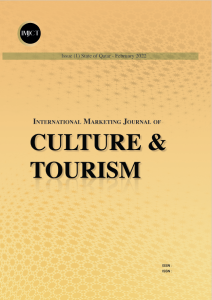Tourism Carrying Capacity of Community Based Ecotourism: Case Study of Olo-Olo Mangrove Forest, and Eco-Park in Lobo, Batangas, Philippines
Masa, Jan Racky A, Constantino,
Charlene Jovanne B, and Santos, Katherine T
Received Date: 2023-07-09 |Accepted Date: 2023-11-27 | Publication Date: 2024-02-01
Abstract:
The purpose of this research is to analyze the Tourism Carrying Capacity of recreational activities in a community-based tourism destination and determine the sustainability of the ecotourism management in Olo-Olo Mangrove Forest and Eco Park in Lobo, Batangas, Philippines, by calculating the physical ecological and social carrying capacity of the recreational activities of the community-based ecotourism site. The method utilized in this research is mixed, measuring quantitative analysis of Carrying capacities using Boullon’s Model applied with the Limits of Acceptable Change (LAC) framework. A qualitative approach was used in determining the social and ecological carrying capacity and recorded preferences of the site manager and the visitors. The study reveals that the total physical carrying capacity may range from 79 to 2488 tourists per day; ecological- solid wastes capacity of 333 tourists daily; ecological- water availability capacity of 20 tourists daily; and social carrying capacity of 900 to 1200 tourists daily. The combined tourism carrying Capacity of OMFE shows that the mangrove park can accommodate a wide range of tourists per day depending on which LAC scenario. The current tourist influx in OMFE is only 26 visitors daily on average, which is far below the computed combined carrying capacity. It is still directed towards sustainable ecotourism.
Keywords: Tourism Carrying Capacity, Mangrove Eco Park, combined carrying capacity, Community-Based Ecotourism

